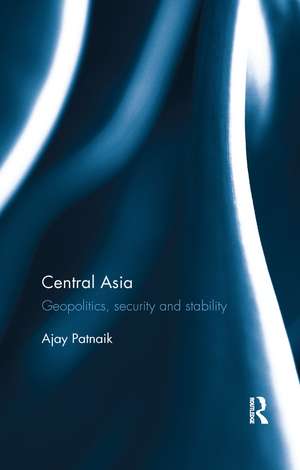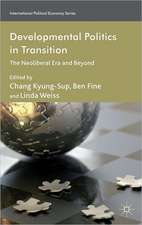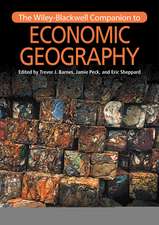Central Asia: Geopolitics, security and stability
Autor Ajay Patnaiken Limba Engleză Paperback – 25 apr 2019
| Toate formatele și edițiile | Preț | Express |
|---|---|---|
| Paperback (1) | 416.22 lei 6-8 săpt. | |
| Taylor & Francis – 25 apr 2019 | 416.22 lei 6-8 săpt. | |
| Hardback (1) | 1053.92 lei 6-8 săpt. | |
| Taylor & Francis – apr 2016 | 1053.92 lei 6-8 săpt. |
Preț: 416.22 lei
Nou
Puncte Express: 624
Preț estimativ în valută:
79.64€ • 83.38$ • 65.90£
79.64€ • 83.38$ • 65.90£
Carte tipărită la comandă
Livrare economică 05-19 aprilie
Preluare comenzi: 021 569.72.76
Specificații
ISBN-13: 9780367177072
ISBN-10: 0367177072
Pagini: 256
Dimensiuni: 138 x 216 x 14 mm
Greutate: 0.45 kg
Ediția:1
Editura: Taylor & Francis
Colecția Routledge India
Locul publicării:Oxford, United Kingdom
ISBN-10: 0367177072
Pagini: 256
Dimensiuni: 138 x 216 x 14 mm
Greutate: 0.45 kg
Ediția:1
Editura: Taylor & Francis
Colecția Routledge India
Locul publicării:Oxford, United Kingdom
Public țintă
PostgraduateCuprins
List of Tables. List of Abbreviations. Acknowledgement. Preface. 1. Geopolitics: Concept and Reality 2. Security concerns of Central Asian States 3. Energy Geopolitics in the Central Asia-Caspian region 4. Russia in Central Asia: The Geopolitical Balancer 5. Central Asian States and regional powers: China, Iran, Turkey and India 6. Central Asia: Regionalism and Regional Mechanisms 7. Regional stability: Challenges and Prospects 8. Conclusion Bibliography Index
Notă biografică
Ajay Patnaik is Professor at the Centre for Russian and Central Asian Studies, Jawaharlal Nehru University, India. He has authored three books: Nations, Minorities and States in Central Asia (2003), Central Asia Between Modernity and Tradition (1995) and Perestroika and Women Labour Force in Soviet Central Asia (1989). He is also the Executive Editor of the journal Contemporary Central Asia.
Descriere
This book focuses on the relationship that Central Asia maintains with major external powers and how the geopolitics of the region is less polarised and free of the so calledNew Great Game. The roles of other regional powers like Russia, China, Iran and Turkey have been discussed along with what the author calls India‘s "Silk Road Strategy".













